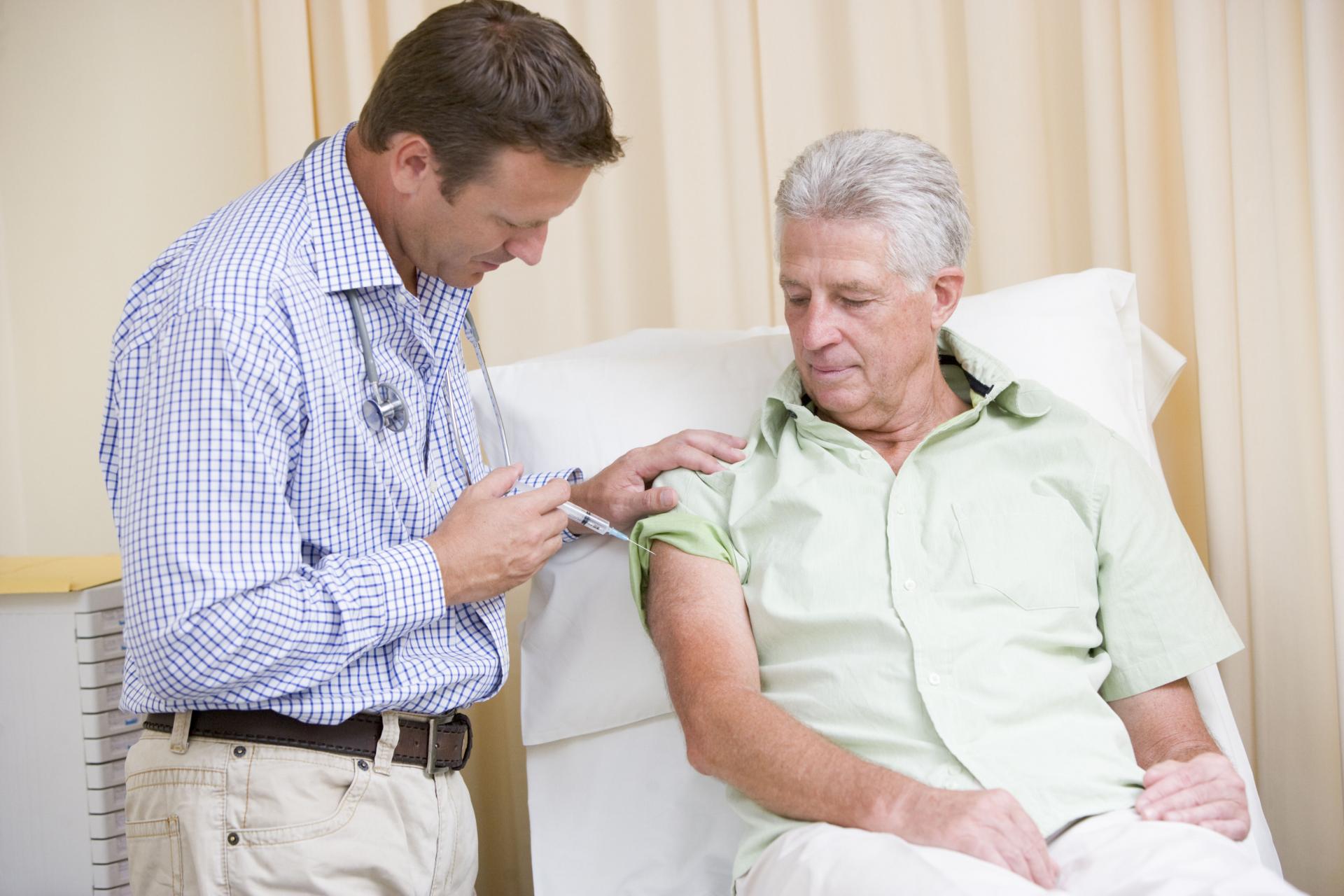World Pneumonia Day - should I have a pneumonia jab?
Published on: 12 November 2018World Pneumonia Day aims to raise awareness of pneumonia and promote prevention and treatment.

The pneumococcal vaccine (pneumonia or pneumo jab) is active against a bacterial infection that can cause pneumonia, meningitis and septicaemia. These infections are particularly serious in people with a suppressed immune system. It is not a general protection against all forms of pneumonia, just pneumonia caused by the 'pneumococcus' organism. The pneumo jab is available on the NHS for children and adults aged from 2 to 64 years old who are at a higher risk of developing a pneumococcal infection than the general population - this is generally the same people who are eligible for annual flu vaccination. Speak to a member of your medical team about the pneumonia jab.
People with lymphoma, who have had their spleen removed (splenectomy), who are having chemotherapy, steroids or radiotherapy should also be aware of the importance of the annual influenza vaccine or flu jab. These can suppress your immune system, making you more vulnerable to flu. People who are in close contact with you should also have the flu jab.
The timing of the flu jab is important. Ideally people should have this before they start treatment because once on treatments such as rituximab, there is evidence to suggest the flu vaccine is not as effective.
You need to be vaccinated every year as each year the vaccine available is developed based on the virus strains experts think are most likely to be around in the coming year. If you are attending hospital regularly for treatment, you may be able to have your flu jab there; otherwise ask your local GP surgery. The flu vaccine does not contain live virus, so you cannot catch flu from having the jab.
Some pre school and primary school children have the flu vaccine as a nasal spray*. You should avoid close contact with children who have had the nasal spray for 2 weeks following their vaccination if your immune system is severely weakened.This is because the nasal spray contains a live, but weakened, form of the flu vaccine. So there is a very small chance that the vaccine virus could be passed on to you and cause flu. The injection does not contain a live form, so these precautions do not apply to contact with people who have had the injection.
Important advice:
- Aim to have the flu vaccination before you commence treatment.
- If on treatment, ask your treating doctor about the best time to have the vaccination.
- If you have had a transplant, you should receive the flu vaccination six months post transplant and annually thereafter.
Acknowledgements:
With thanks to Dr Cathy Burton, Consultant Haematologist at Leeds Teaching Hospitals for answering this question and Dr Graham Collins, Consultant Haematologist, Oxford Cancer Haematology Centre for information about the pneumonia jab.
*Information about the flu vaccine as a nasal spray has been adapted from the Cancer Research UK website.
Stock photo image
